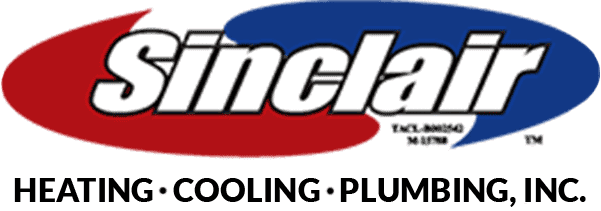
During the winter, many of us spend most of our time indoors, yet we often take the air quality in our homes for granted. We all know that fresh air is essential, but did you know that the quality of the air inside your home can be up to five times more polluted than the air outside? According to the EPA, the air inside our homes is often more polluted than outside.
Poor indoor air quality can lead to various health problems, including headaches, fatigue, difficulty concentrating, and even respiratory illnesses. Thankfully, you can do several things to increase the quality of your indoor air and improve your overall health.
The Health Benefits of Fresh Air Inside
Here are just a few of the ways that fresh air can improve your health:
- It helps to improve your mood.
- It helps increase your energy levels.
- It can help to clear your mind and improve your focus.
- It helps to reduce stress levels.
- It can help to boost your immune system.
- Enjoy a better night's sleep.
- It can help to improve your overall respiratory health.
- Linked with helping to reduce the risk of developing Alzheimer's disease and other forms of dementia.
- Last but not least, it just plain feels good! Nothing like a breath of fresh air that makes you feel invigorated and alive.
Different Ways to Increase Your Indoor Air Quality
Plants
Adding some plants to your home is easy to increase indoor air quality. Plants act as natural air purifiers by absorbing carbon dioxide and releasing oxygen. They also remove toxins such as formaldehyde and benzene from the air. If you're not much of a green thumb, don't worry - many low-maintenance options, like succulents and cacti, are perfect for beginners. Just be sure to avoid poisonous plants like philodendrons and dieffenbachias if you have pets or small children in your home.
Here are our top five plant recommendations to help increase your indoor air quality.
- Spider Plant
- Peace Lily
- Money Plant
- Snake Plant
- Aloe Vera Plant
Media Filters
Another way to improve indoor air quality is by using media filters in your HVAC system. These filters are much more effective than standard fiberglass filters at removing airborne particles like dust, pollen, and pet dander from your airstream. Be sure to change your filter regularly - most experts recommend every three months - to ensure that it remains effective.
Wash Your Bedsheets Regularly
You may not realize it, but your bed sheets can be a breeding ground for dust mites, mold, and mildew. That's why washing them regularly in hot water is vital to kill these allergens. It would be best to wash your pillowcases often since they come into direct contact with your face while you sleep. Wash them in hot water once a week or put them in the freezer for 24 hours to kill any dust mites that may be hiding inside.
Air Scrubber
An air scrubber is a device that attaches to the ductwork of your HVAC system. This device's benefit is that it eliminates pollutants that your regular air filter can't. Not only does this device remove dust and dander, but it also removes viruses, VOCs, surface contaminants, and foul odors.
Humidifier
A humidifier can help add moisture to the air. Dry air can cause problems like nosebleeds, cracked skin, and static electricity shocks, and it can aggravate respiratory problems like asthma and allergies. That's why it's important to maintain a relative humidity level of 30-50% in your home.
Change Your Air Filters Regularly
One of the easiest things you can do to improve the air quality in your home is to change your air filters regularly. Most people don't realize that they must change their air filters every three months to keep their HVAC system well maintained. However, if someone in your home suffers from allergies or asthma, you may need to change them more frequently.
If you have any questions about how to improve your indoor air quality, our experts at Sinclair Heating, Cooling, Plumbing, Inc are eager to help! Give us a call today. (806) 454-9332

